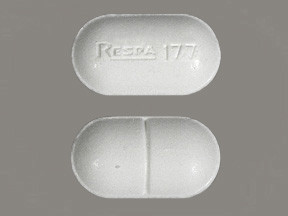DECONGESTANT/ANTIHISTAMINE/ANTICHOLINERGIC - ORAL
PHONETIC PRONUNCIATION:
GENERIC NAME(S): pseudoephedrine HCl/chlorpheniramine maleate/bellad alk
Uses
USES: This medication is used for the temporary relief of runny/stuffy nose, watery/itchy eyes, and itchy throat caused by allergies, hay fever, the common cold, and other breathing illnesses. This product is usually not used for ongoing cough from smoking or long-term breathing problems (such as chronic bronchitis, emphysema) unless directed by your doctor. The decongestant treats nasal congestion by narrowing the blood vessels in the nose. The antihistamine relieves itchy/watery eyes and itchy throat by blocking a substance (histamine) released by allergies. The anticholinergic dries up a runny nose and the fluid that runs down your throat causing itching/irritation. Cough-and-cold products have not been shown to be safe or effective in children younger than 6 years. Therefore, do not use this product to treat cold symptoms in children younger than 6 years unless specifically directed by the doctor. Some products (such as long-acting tablets/capsules) are not recommended for use in children younger than 12 years. Ask your doctor or pharmacist for more details about using your product safely. These products do not cure or shorten the length of the common cold and may cause serious side effects. To decrease the risk for serious side effects, carefully follow all dosage directions. Do not use this product to make a child sleepy. Do not give other cough-and-cold medication that might contain the same or similar ingredients (see also Drug Interactions section). Ask the doctor or pharmacist about other ways to relieve cough and cold symptoms (such as drinking enough fluids, using a humidifier or saline nose drops/spray).
How to use DECONGESTANT/ANTIHISTAMINE/ANTICHOLINERGIC - ORAL
HOW TO USE: Take this medication by mouth with a full glass of water unless otherwise directed by your doctor. Since dosing recommendations may vary, carefully follow your doctor's directions for taking this medication. This medication may be taken with food or milk if stomach upset occurs. To prevent trouble sleeping, do not take this medication close to bedtime. If you are uncertain about any of the information, ask your doctor or pharmacist. Dosage is based on the product you are taking and on your age, medical condition, and response to treatment. Do not increase your dose or take this drug more often than directed. If you are using a liquid form, carefully measure your prescribed dose using a medication-measuring device or spoon. Do not use a household spoon because you may not get the correct dose. If your liquid form is a suspension, shake the bottle well before each dose. Swallow extended-release capsules whole. Do not crush or chew extended-release capsules or tablets. Doing so can release all of the drug at once, increasing the risk of side effects. Also, do not split extended-release tablets unless they have a score line and your doctor or pharmacist tells you to do so. Swallow the whole or split tablet without crushing or chewing. Chewable forms of this medication should be chewed thoroughly before swallowing. Caffeine can increase the side effects of this medication. Avoid drinking large amounts of beverages containing caffeine (coffee, tea, colas), eating large amounts of chocolate, or taking nonprescription products that contain caffeine. Tell your doctor if your condition is accompanied by fever, severe sore throat, rash, persistent headache, or if it persists, returns, or worsens after 7 days. These may be signs of a serious medical problem.
Side Effects
Precautions
Interactions
Overdose
Images
Reviews
Faq for DECONGESTANT/ANTIHISTAMINE/ANTICHOLINERGIC - ORAL
- A decongestant/antihistamine/anticholinergic oral medication is a type of medication that is used to relieve symptoms associated with allergies and sinus congestion.
- This medication works by reducing the swelling of nasal tissues, relieving nasal congestion, and suppressing the body's histamine response, which helps alleviate symptoms such as runny nose, sneezing, and itching. Additionally, an anticholinergic component may be present to further reduce mucus production and glandular secretions.
- This medication can effectively treat symptoms associated with hay fever (allergic rhinitis), sinusitis, and common cold, such as nasal congestion, sneezing, runny nose, and itchy/watery eyes.
- Common side effects may include drowsiness, dizziness, dry mouth, blurred vision, constipation, and urinary retention. It is important to read the medication label and follow the recommended dosage to minimize side effects.
- It is advisable to consult with a healthcare professional before taking this medication if you have high blood pressure. Some decongestants can raise blood pressure and may interact with certain medications, so medical guidance is important.
- It is recommended to consult your healthcare provider before taking this medication if you have a heart condition. Some decongestants can increase heart rate or have interactions with certain heart medications.
- It is best to consult with a healthcare professional prior to using this medication if you are pregnant or breastfeeding. They can provide personalized advice on the safety and appropriate usage during these situations.
- Certain medications, such as MAO inhibitors, antidepressants, and sedatives, may interact with this medication. Always consult your healthcare provider or pharmacist before combining medications to avoid potential interactions.
- It is typically recommended to use this medication for a short duration, usually 7-10 days. Prolonged use may lead to tolerance or rebound congestion, so it's essential to follow the recommended duration and dosage instructions.
Disclaimer
IMPORTANT: HOW TO USE THIS INFORMATION: This is a summary and does NOT have all possible information about this product. This information does not assure that this product is safe, effective, or appropriate for you. This information is not individual medical advice and does not substitute for the advice of your health care professional. Always ask your health care professional for complete information about this product and your specific health needs.

No Reviews Yet